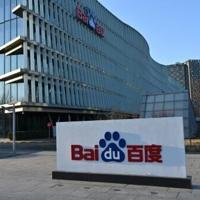Baidu Unveils New AI Model to Rival DeepSeek

Baidu Launches New AI Model Amid Intense Competition
Chinese technology giant Baidu made headlines recently with the release of its latest artificial intelligence (AI) reasoning model and the exciting news that its AI chatbot services are now free for consumers. This development has occurred in the midst of fierce competition within the AI sector, spurred by rapid advancements from rival companies.
Introduction of the X1 Reasoning Model
On a Sunday in October, Baidu introduced its new X1 reasoning model, which aims to provide performance that is comparable to that of the DeepSeek model, yet at a lower cost. This move comes after a surge of interest in AI platforms, particularly following the influential launch of DeepSeek’s open-source model in January. DeepSeek’s innovative approach has set a new standard in the industry, challenging established players to enhance their offerings.
Baidu also unveiled its new foundation model, Ernie 4.5, which the company claims excels beyond previous iterations. The updated model reportedly outperforms US-based OpenAI’s GPT-4.5 in several benchmarks. Baidu’s representation of the Ernie Bot, which has now become free for users, signifies a shift toward making AI tools more accessible to the public. Previously, users had to subscribe to access the AI’s latest functionalities.
Key Features of Baidu’s New AI Models
Cost-Effectiveness: Baidu’s X1 reasoning model is highlighted for its lower operational costs while maintaining competitive performance metrics.
Performance: The Ernie 4.5 model reportedly excels in various tasks compared to its counterparts, including capabilities in understanding, planning, reflection, and evolution.
- User Accessibility: Making the Ernie Bot free for individual users will likely increase its adoption rate, especially in a market where users are increasingly looking for cost-effective AI solutions.
Competitive Landscape in AI Technology
Baidu’s efforts come as it competes with numerous startups and established companies in the AI space. DeepSeek’s introduction of its open-source model has created a ripple effect, prompting other technology firms to enhance their AI capabilities. Companies such as TikTok’s owner, ByteDance, alongside Moonshot AI, have begun attracting considerable consumer attention with their innovative chatbot offerings.
Additionally, Baidu has sought to integrate DeepSeek’s R1 reasoning model into its own search engine, aiming to maintain a competitive edge in the market. Meanwhile, other tech giants are also making strides. For instance, Tencent, the parent company of WeChat, announced a new AI model in February that targets faster response times for user inquiries, even as it builds on technology from competitors like DeepSeek.
Investments and Future Strategies
Tech conglomerate Alibaba is another key player in the landscape, announcing a staggering investment of 380 billion yuan (approximately $52 billion) over three years, aimed at advancing AI and cloud computing technologies. The company has further enhanced its AI capabilities by launching an updated version of its AI assistant app, which leverages Alibaba’s own open-source Qwen reasoning model.
Embracing the trend of open-source technology, Baidu plans to make its Ernie AI models publicly available starting June 30. This strategy aligns with the growing emphasis on collaboration and shared technology standards within the industry.
Conclusion and Next Steps in AI Development
The rapid developments within China’s AI sector underscore the need for companies to continue evolving. With major players now offering free services and exploring open-source models, consumers stand to benefit from a more competitive marketplace filled with innovative AI technologies. As the technology landscape shifts, Baidu, DeepSeek, Alibaba, and Tencent will be closely watched as they unveil new features and capabilities that will shape the future of AI.





